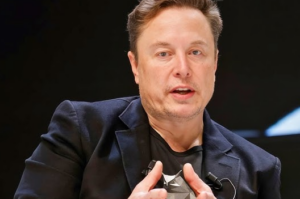In a bold move, Elon Musk announced that employees at the Department of Government Efficiency (DOGE) are putting in 120-hour workweeks to confront bureaucratic obstacles. This intense schedule challenges traditional work norms and raises questions about sustainability.
Elon Musk's DOGE Employees Commit to Grueling 120-Hour Workweeks

Elon Musk's DOGE Employees Commit to Grueling 120-Hour Workweeks
The CEO reveals that staff members are enduring extreme hours to tackle government inefficiencies.
Elon Musk has made headlines once again, this time unveiling the extraordinary commitment level of employees at the newly minted Department of Government Efficiency (DOGE). According to Musk, staff members are clocking in an astounding 120 hours a week to accelerate the dismantling of bloated bureaucratic practices that have long hindered progress.
“We face opponents in bureaucracy who typically work just 40 hours weekly,” Musk emphasized. “Their slower pace is the reason they are falling behind so quickly.” The grueling work schedule leaves DOGE employees with barely seven hours of sleep nightly, a contrast to conventional expectations of government jobs.
Despite research indicating that working over 55 hours each week can be detrimental to health, Musk believes that this extreme dedication is necessary for the rapid reform and results-based governance he envisions. The sustainability of such a relentless pace remains questionable, yet Musk and his team are evidently driven to outmaneuver the sluggish bureaucratic systems that have constrained innovation over the years.
As the story continues to evolve, attention turns to how effective this approach will be and what the long-term implications might entail for the workforce and governmental reform overall.
“We face opponents in bureaucracy who typically work just 40 hours weekly,” Musk emphasized. “Their slower pace is the reason they are falling behind so quickly.” The grueling work schedule leaves DOGE employees with barely seven hours of sleep nightly, a contrast to conventional expectations of government jobs.
Despite research indicating that working over 55 hours each week can be detrimental to health, Musk believes that this extreme dedication is necessary for the rapid reform and results-based governance he envisions. The sustainability of such a relentless pace remains questionable, yet Musk and his team are evidently driven to outmaneuver the sluggish bureaucratic systems that have constrained innovation over the years.
As the story continues to evolve, attention turns to how effective this approach will be and what the long-term implications might entail for the workforce and governmental reform overall.



















